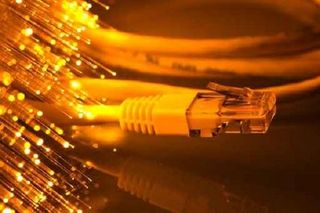Why we need to abandon networking quick-fixes in 2021
The wholesale market can play a role in encouraging clients to think about the long-term needs of their business

Although 2020 brought rapid change for every business, for me, one of the most important trends from the last year has been flexible working and the speed at which organisations across the UK have set this up. This was largely a success, but the performance of networks has, at times, hindered these efforts. From my conversations with partners, a common observation is a short-term approach to network upgrades, as opposed to a more strategic mindset, is holding businesses and public sector organisations back.
With organisations like Facebook, Twitter and Siemens committing to flexible working over the long term, this trend looks set to continue growing, and the need for fast, reliable, and secure connectivity has never been greater. But my worry is if a short-term mentality continues, this could hinder organisations in their ability to rebound from COVID. To tackle this, wholesale partners must play a critical role in making the case for a more strategic view of networking infrastructure.
Making the case for networks
The number of businesses taking a “quick fix” approach to their networking infrastructure suggests there isn’t a deep enough understanding of its importance to business success. From temporary server security reductions to enable remote working, through to the rollout of VPN connectivity services to access corporate networks, some businesses have, understandably, sought immediate and relatively inexpensive solutions to keep their business operating remotely.
But while some of these solutions may address current needs, they may not be right when it comes to supporting flexible working over the longer term and meeting customer demand online. Now, as the vaccine rollout continues at pace and organisations start to plan not just for the weeks and months ahead but for what’s just around the corner, decisions about network upgrades need to be framed in terms of long-term commercial success and growth wherever possible.
Wholesale partners have an important role to play in overcoming the “quick fix” misperception. But to do so, they need to get much closer to the end-customer. What struck me from our recent survey was that a third of IT managers see their relationship with their wholesale partner as purely transactional, while 31% believe their chosen supplier doesn’t have the expertise to help them adapt and make the right upgrades. I’ve heard first-hand from our partners that collaboration is key to improving relationships, tackling misperceptions about networks and reinforcing long-termism among end-customers.
Wholesale partners must invest in relationships with end customers, placing more emphasis on consultancy and actively pointing them towards networking solutions that can drive success over the long term. Ensuring they’re aware of advances in various products, too, is one way of encouraging a more strategic view of networking infrastructure.
Wholesale connectivity providers like us have an important role to play, too, which is why we’re making a multimillion-pound investment in core networking capabilities and widening access to our 10Gbps portfolio across the UK. Wholesale partners should look to get end-customers excited and inspired by the benefits that this technology can bring.
Channel Pro Newsletter
Stay up to date with the latest Channel industry news and analysis with our twice-weekly newsletter
Investing in the technologies of tomorrow
5G, the IoT and machine learning are all transformative technologies that can help support a national rebound from COVID disruption. And business leaders are clearly excited by their potential. But to take full advantage of these innovations, organisations will need to invest in the connectivity infrastructure which supports them. By becoming more consultative in their approach, wholesale partners can encourage end-customers to think about their networking infrastructure as an enabler. Not just of immediate benefits, but of futureproofing and innovation.
Last year didn’t just bring a pandemic, it was also the worst year on record for cyber attacks. While, fortunately, most fail, a small business in the UK is successfully hacked every 19 seconds, according to insurance provider Hiscox. In the time you’ve been reading this article, eight organisations have already been compromised. Meanwhile, the average cost of a data breach is £2.9 million, meaning organisations are at risk of devastating financial losses if they do not protect themselves. And a big part of doing this is investing in resilient networking technologies. A short-term mentality towards protection can be dangerous. A solution might be secure today, but could be totally unfit to deal with tomorrow’s threats. Private network solutions are difficult to intercept, making them more resilient, even with the growing sophistication of cyber-attacks.
It’s understandable that many organisations are focused on meeting immediate needs. With lockdown restrictions continuing, their focus has been on surviving and stabilising. But core networks are of such fundamental importance that business leaders need to take a strategic view of their connectivity investments. By thinking in this way, they can unlock endless opportunities – including greater resilience, more agility to support hybrid working, and being able to capitalise on next-generation technologies.
If we get this right, we can drive the COVID-19 rebound and help seize on the £232bn opportunity for the UK economy revealed by our study with the Centre for Economics and Business Research. To accelerate this growth, wholesale partners must become more consultative and get closer to end-customers. By doing so, they’ll play a pivotal role to play in shifting this mindset and help the UK rebound stronger.
Mike Hallam is executive director at Virgin Media Business – Wholesale




